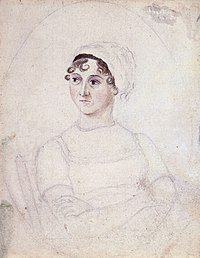 |
| Created with Wordle |
To continue with that practise, I strongly recommend this worksheet by Cambridge University Press. You can have a look at the answers too.
I wish I could take my students around the world, we could speak in English all the time; since I can't, I write this blog, and I hope it helps them to learn and love the English language as much as I do.
 |
| Created with Wordle |
 |
| Wikipedia |
|
v Jane Austen was a
_____________________________. She
wrote _____________.
v She was born in _______________________________.
Ø When she was a child,
______________________________.
Ø When she was older,
_______________________.
v In ______________________, she _______________________________.
Ø The next year, she
______________________________. She died in ____________.
|
 |
| Anglais-facile.com |
|
Spanish
|
Infinitive
|
Simple past
|
Past participle
|
|
Ser,
estar
|
Be
|
Was/were
|
Been
|
|
Romper
|
Break
|
Broke
|
Broken
|
|
Elegir
|
Choose
|
Chose
|
Chosen
|
|
Hablar
|
Speak
|
Spoke
|
Spoken
|
|
Robar
|
Steal
|
Stole
|
Stolen
|
|
Despertarse
|
Wake
|
Woke
|
Woken
|
|
Morder
|
Bite
|
Bit
|
Bitten
|
|
Esconderse
|
Hide
|
Hid
|
Hidden
|
|
Conducir
|
Drive
|
Drove
|
Driven
|
|
Montar
|
Ride
|
Rode
|
Ridden
|
|
Escribir
|
Write
|
Wrote
|
Written
|
|
Caerse
|
Fall
|
Fell
|
Fallen
|
|
Olvidar
|
Forget
|
Forgot
|
Forgotten
|
|
Comer
|
Eat
|
Ate
|
Eaten
|
|
Dar
|
Give
|
Gave
|
Given
|
|
Coger
|
Take
|
Took
|
Taken
|
|
Ver
|
See
|
Saw
|
Seen
|
|
Helarse
|
Freeze
|
Froze
|
Frozen
|
 |
| anglais-facile.com |
Spanish
|
Infinitive
|
Simple past
|
Past participle
|
Costar
|
Cost
|
Cost
|
Cost
|
Cortar
|
Cut
|
Cut
|
Cut
|
Golpear
|
Hit
|
Hit
|
Hit
|
Herir
|
Hurt
|
Hurt
|
Hurt
|
Dejar,
permitir
|
Let
|
Let
|
Let
|
Poner
|
Put
|
Put
|
Put
|
Cerrar
|
Shut
|
Shut
|
Shut
|
 |
| What will the future bring? |
|
Uses
|
Tense/Modal/Periphrasis
|
Form
|
|
Timetables&schedules
|
Present
simple
|
V/Vs
|
|
Long-term predictions
Spontaneous decisions
Offers
Promises
|
Will
|
Will+infinitive (V)
|
|
Closed plans
|
Present continuous
|
To be+gerund (Ving)
|
|
Short-term predictions
Intentions
|
Be going to
|
Be going to+infinitive (V)
|
|
Action happening at a given time in the future
|
Future continuous
|
Will be+gerund (Ving)
|
|
Action finished at a given time in future
|
Future perfect
|
Will have+past participle (Ved)
|